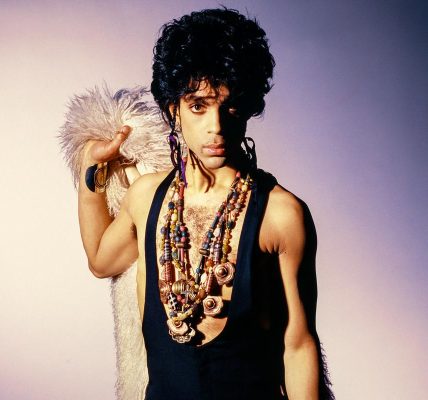In a recent discussion with Complex, Linkin Park’s Mike Shinoda reflected on the significant decisions that shaped their early career, particularly regarding their groundbreaking album Hybrid Theory. He emphasized how standing firm against label suggestions allowed the band to maintain their artistic integrity and vision. By resisting pressure to conform, they ensured that their live performances and the overall sound of their breakout album aligned with their original intentions. This self-advocacy played a crucial role in establishing them as a formidable force in the music industry.
Shinoda noted that their label?s approach was more of a ‘wait and see’ attitude rather than an outright vote of confidence. Many young bands often fall into the trap of simply being grateful for a record deal, but Linkin Park was determined to assert their vision and creative direction. This mindset was pivotal in crafting the identity they wanted to project to their fans.
“We dedicated significant time to developing our sound and solidifying our foundation instead of merely chasing fan approval,” Shinoda explained. “The more we created, recorded, and adhered to our principles, the more we found ourselves resisting the label’s suggestions for changes. Typically, we would respond with a firm ‘no’.” The band’s commitment to their vision was instrumental in their eventual success.
Humorous Moments: The Unconventional Stage Suggestions
Reflecting on the evolution of their performance style during the making of their debut album, Shinoda shared a humorous incident involving an A&R representative. This individual suggested that, to enhance their live shows, they should incorporate a gimmick, such as stepping out of their shoes while performing. ?We thought, ‘What the heck?’ That was a literal suggestion handed to us,” he recounted, illustrating how absurd some ideas can be when attempting to fit into industry norms.
While the suggestion was meant to add flair to their performances, it highlighted the vast differences between industry expectations and their artistic vision. “I don’t want to portray him as out of touch; he was simply offering a thought that seemed to come to him spontaneously,” Shinoda clarified. However, it?s clear that such unconventional suggestions could have significantly altered Linkin Park’s performance image.
Determined to Maintain Their Sound and Identity
On a more serious note, Linkin Park had a definitive vision for how they wanted Hybrid Theory to sound, including their choice of mixer. ?As we wrapped up Hybrid Theory, we were adamant that only Andy Wallace should mix our album. Wallace had previously mixed iconic records like Run-DMC’s Raising Hell, Rage Against the Machine’s self-titled album, and Evil Empire, blending rock samples with industrial sounds in a contemporary style that resonated with us,” Shinoda stated.
He further highlighted Wallace’s credentials, mentioning, “He also mixed Nirvana’s Nevermind, which solidifies his status as an industry icon. His mixing expertise is unparalleled, making him the sole choice for Hybrid Theory.” This clear vision could have easily been compromised had they not been willing to voice their preferences and concerns.
Shinoda expressed their fears about the label’s influence, stating, ?We were terrified that our A&R guy had conducted a test mix with someone else due to internal politics. We worried that they might release a version of our album that didn?t represent our original vision.” It was essential for them to advocate for themselves and engage in tough conversations to ensure their artistic integrity remained intact.
Linkin Park’s Early Success: A Testament to Right Decisions
Ultimately, Linkin Park made several pivotal choices during the early stages of their career. The success of their breakout single “One Step Closer” propelled Hybrid Theory to remarkable heights, reaching No. 2 on the Billboard 200 Album Chart shortly after its release. This success was a clear indication that their artistic choices resonated with the audience.
The band quickly garnered invitations to perform at major festivals like Ozzfest and Family Values Tour. By the end of their support for Hybrid Theory, they successfully launched their own Projekt Revolution tour, demonstrating their growing influence without resorting to gimmicks.
The album featured four singles, with “Runaway” making waves on radio and “Points of Authority” later being remixed by Orgy’s Jay Gordon, becoming a highlight of their Reanimation remix album. Hybrid Theory achieved the rare Diamond certification for exceeding 10 million units sold in the U.S. and has since surpassed 13 million, solidifying its status as a groundbreaking work in the nu-metal genre.
Mike Shinoda’s Insights in Conversation with Complex
Ranking Every Linkin Park Single
The band dominated the airwaves, but which of their singles stands out as the best?
Gallery Credit: Chad Childers, Loudwire




